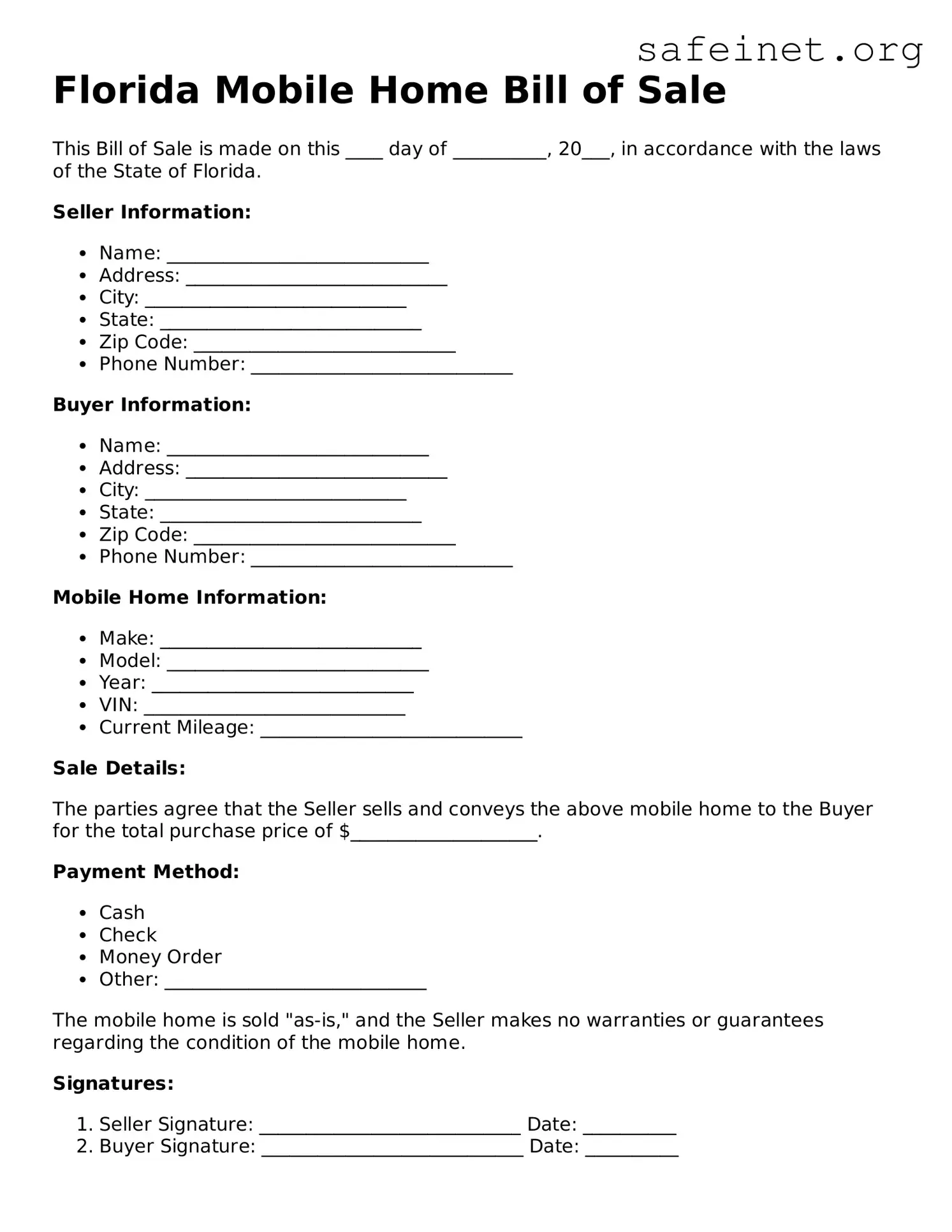What is a Florida Mobile Home Bill of Sale form?
The Florida Mobile Home Bill of Sale form is a legal document used for the sale and transfer of ownership of a mobile home. This form captures essential information about the buyer, seller, and the mobile home itself. It serves as proof of the transaction and details any terms agreed upon by both parties. Properly completing this form is crucial for ensuring clear ownership transfer and protecting both the seller's and buyer's interests.
Why is a Bill of Sale necessary for a mobile home transaction?
A Bill of Sale is necessary for several reasons. First, it provides legal documentation of the sale, which helps prevent disputes regarding ownership in the future. Second, it often includes details about the mobile home, such as the make, model, and identification numbers, ensuring that both parties have a clear understanding of what is being sold. Finally, it may be required by the Florida Department of Highway Safety and Motor Vehicles for registration purposes.
What information should be included in the Bill of Sale?
The Bill of Sale should include various key details. These include the names and addresses of both the buyer and seller, a description of the mobile home (including the manufacturer, model, and serial number), the sale price, and the date of the transaction. Both parties should sign the document to validate the agreement. It is also wise to note any warranties or conditions related to the sale.
Do I need to have the Bill of Sale notarized?
While not always required, it is highly recommended to have the Bill of Sale notarized. Notarization adds an extra layer of validation to the document, making it more difficult for anyone to contest its authenticity. If disputes arise in the future, having a notarized Bill of Sale can serve as stronger evidence of the transaction's legitimacy.
What should I do after completing the Bill of Sale?
After completing and signing the Bill of Sale, the buyer should ensure that it is filed with the appropriate local agency, such as the county tax collector's office or the Florida Department of Highway Safety and Motor Vehicles. This step is essential for registering the mobile home in the buyer's name. The seller should keep a copy for their records, confirming the sale and completion of the transaction.
